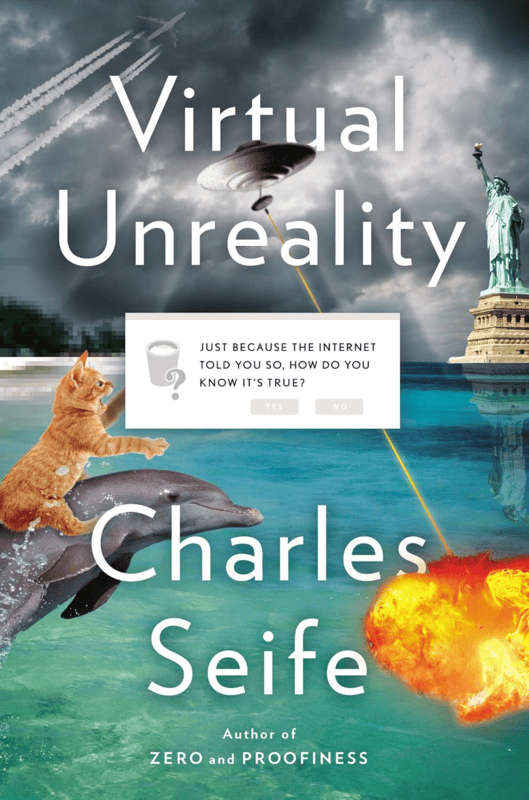
I got the book by chance at SDU's library. It was published in 2014 (a decade ago!). Anything that has reported on the digital world of ten years ago is necessarily outdated; not only that, everything is arguably intensified, now. It is still relevant work — if nothing else as a staple of comparison with our recent history — and one can also take it as a light summary of internet's defining characteristics, as it explores many relevant quirks of the medium: the (new) relativity of truth, the strengths and weaknesses of public, collaborative havens of knowledge (like Wikipedia), the possibility of creating fake personas, of reaching large audiences with very little effort; that, and much more.
The book starts by alluding to the notion of information. A more precise definition, stemming from information theory, will only arrive in a later chapter, but the brief statement of the current digital reality enabling quicker transmission of information nevertheless echoes Dawkins idea of the meme. A while later, once more I come across the brain as an information processing machine — and this has certainly become more relevant with the advent of LLMs and the scale of the information that we process (Seife has also authored Decoding the Universe, which seems to push the information concept further).
(throughout the book, Seife pulls from many different examples to illustrate his points: for problems of reproducibility of information — where digital media are generally more reliable than analogue, he mentions the process of reproducing the Torah).
From information theory, then: information is only relevant when unpredictable (for if we already know what an envelope contains, it stops being relevant information; it's noise). This notion is introduced to try and delve further in the phenomenom of polarisation, that usually manifests in what we now have termed to be echo chambers.
Seife brings an interesting perspective on the origins of media polarisation, which he places at the original divide of the United States' television networks: at first, only three broadcasting companies existed; later on, these gave way to more and more specialized, targeted content to smaller demographics. And then, of course, the internet accelerated and intensified the process.
(around the same period I read the book, I came across the idea of television's modern tendency to have less news and more comments about the news, which is a much cheaper model of business than to, well, produce good journalism. I thought it had come from this book, but apparently not — but I digress!).
There are some interesting takes regarding copywright and the importance of proper curation — once again, two problems with renewed interest due to the appearance of LLMs, as they make content generation much more accessible and easy.
| Title | Virtual Unreality |
|---|---|
| Author | Charles Seife |
| Publisher | Viking / Penguin |